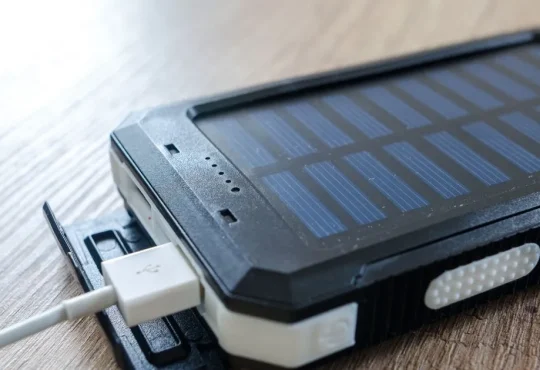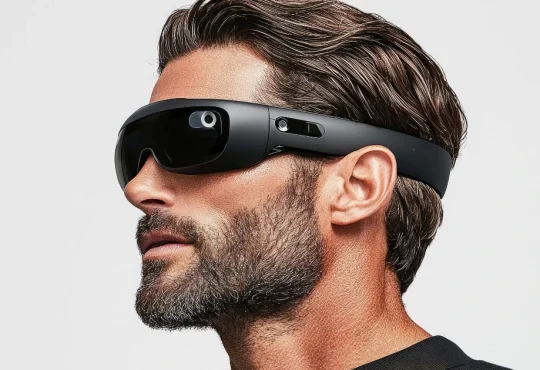Homes represent a significant investment and serve as individuals’ primary space for most of their time. The physical environment of a home, including factors like natural light and wall color, profoundly impacts residents’ health and happiness. With the rise of new technologies, homes have a more significant influence on well-being. Smart technology goes beyond convenience, potentially enhancing residents’ health and quality of life.
Smart Technology Benefits: The Top 7 Significant Influences!
Illness Prevention
Since the onset of the COVID-19 pandemic in 2020, homeowners have increasingly prioritized illness prevention and cleanliness within their living spaces. Smart home health monitoring technology has risen to meet these concerns, offering innovative solutions such as UV disinfectant lights to eliminate germs and infrared sensors capable of detecting high temperatures, thus enhancing residents’ peace of mind. These advanced devices go the extra mile to combat bacteria and viruses, fostering a healthier home environment.
Moreover, innovative technology is crucial in monitoring indoor air quality (IAQ), a vital factor influencing residents’ health. Studies by the Environmental Protection Agency reveal that indoor pollutants can be 2–5 times more concentrated than outdoor pollutants, leading to various health issues such as headaches, skin and eye irritation, fatigue, and respiratory conditions. Fortunately, intelligent IAQ sensors and cleaners work in tandem to identify potential air hazards and purify indoor air, ensuring residents can breathe freely and comfortably in their homes, thereby further enhancing their overall well-being.
Furthermore, as homeowners become increasingly aware of the importance of maintaining a healthy living environment, smart home technology continues to evolve to address these concerns. With the integration of advanced features like smart IAQ monitoring and UV disinfection, homes are equipped to prevent illness and promote well-being more effectively than ever before. By leveraging these innovative solutions, homeowners can create spaces that prioritize comfort, convenience, health, and safety, ensuring a better quality of life for themselves and their families.
Mental Health Care Benefits
As technology advances, virtual assistants and intelligent software are increasingly adept at addressing residents’ mental health challenges. By learning a homeowner’s preferences and needs, these technologies can customize environments to promote a sense of calm and well-being. For individuals with anxiety disorders, advanced innovative technology offers reassurance by actively ensuring the safety and security of their homes, fostering stability and comfort. Moreover, those dealing with more severe mental health challenges may find comfort in the idea of living alone, thanks to the availability of remote monitoring and telehealth services accessible at their fingertips, providing essential support when needed.
The mental health care benefits of innovative technology are inclusive, catering to the well-being of all homeowners by offering peace of mind and reducing stress levels through various features. Smart home systems provide real-time information on air quality and ensure a consistently stocked fridge, alleviating worries and creating a sense of security. Additionally, the conveniences offered by more brilliant technology serve as practical tools for promoting self-care practices. Voice-controlled functionalities simplify tasks such as adjusting the temperature, playing soothing music, and staying connected with loved ones, encouraging individuals to prioritize their mental well-being and engage in activities that contribute to their happiness and fulfillment.
Embracing innovative technology empowers homeowners to prioritize their mental health and well-being, creating environments that promote relaxation and peace of mind. By leveraging the capabilities of virtual assistants and intelligent software, individuals can cultivate spaces tailored to their unique needs, fostering a sense of comfort and security within their homes. As technology evolves, smart home systems’ mental health care benefits will undoubtedly play an increasingly significant role in enhancing residents’ overall quality of life.
Children’s Education and Development
As children progress through their formative years, the environment in which they grow significantly influences their health and development. Parents are keen on providing their kids with the best resources available, increasingly turning to innovative technology to facilitate learning and enrichment. Smart homes have become adept at accommodating children’s educational needs with the widespread adoption of virtual learning, particularly since 2020. From laptops to tablets, these devices have become indispensable tools for modern schooling, and the latest home charging stations ensure that they are always ready for use when children begin their learning sessions each day.
Moreover, innovative technology offers a range of educational opportunities beyond traditional classroom settings. Interactive learning experiences, educational apps, and digital content tailored to children’s interests and developmental stages can seamlessly integrate into the smart home environment. By leveraging these resources, parents can create an immersive and engaging learning environment that nurtures their children’s curiosity, creativity, and academic growth, ensuring they can access the tools and individuals require the necessary support to flourish in an ever-expanding digital landscape.
Helps Elderly Residents
As individuals age, they encounter many health challenges that may compromise their ability to live independently. However, thanks to advancements in innovative technology, elderly residents can now remain in the comfort of their homes while still receiving the necessary support to maintain their well-being. Centralized health monitoring systems play a pivotal role in this regard, continuously tracking vital signs and daily changes in health status. By providing real-time alerts to users and caregivers, these systems ensure that any potential issues can be addressed promptly, enhancing the overall safety and security of elderly residents.
Moreover, innovative technology facilitates seamless communication between elderly residents and their healthcare providers, streamlining the process of seeking medical assistance when needed. With just a few clicks, elderly individuals can easily connect with doctors or specialists, receiving timely advice and guidance without leaving their homes. Furthermore, caregivers benefit from the convenience and efficiency of remote health monitoring, which enables them to check on multiple patients from any location remotely. By leveraging these innovative technologies, elderly residents can enjoy greater independence and peace of mind, knowing they can access reliable support and assistance whenever required.
Copes with Chronic Diseases and Disabilities
The technologies designed to aid elderly residents in maintaining independence are also highly beneficial for individuals managing chronic conditions or disabilities. Chronic diseases often necessitate frequent medical appointments, which can be physically taxing for patients. By enabling patients to communicate with healthcare providers from the comfort of their homes and even share essential health data like blood pressure and temperature, innovative technology empowers individuals to manage their conditions and healthcare needs better. This facilitates more proactive self-care and reduces the need for physical visits to healthcare facilities, enhancing overall convenience and quality of life for patients.
Moreover, smart homes can be customized to cater to the unique needs of individuals with various disabilities. For instance, those who are blind or visually impaired can utilize voice commands to interact with intelligent systems. At the same time, virtual assistants can provide verbal responses, bridging communication gaps that may arise in traditional environments. By offering seamless integration and accessibility features, innovative technology promotes greater independence and inclusion for individuals with disabilities, facilitating more straightforward navigation and interaction within their living spaces.
Sleep Adequacy
Ensuring adequate sleep is essential for overall health and well-being, and intelligent technology offers innovative solutions to optimize sleep quality. Recognizing that rest plays a crucial role in maintaining good health, smart home features are designed to promote better sleep patterns for both children and adults. For instance, pre-programmed circadian lighting mimics natural daylight cycles, gradually dimming the lights to signal bedtime and increasing brightness in the morning for a gentle wake-up call, aligning with the body’s natural rhythms. Additionally, homeowners can customize temperature settings to create a comfortable sleep environment, with the ability to adjust temperatures throughout the night to ensure uninterrupted rest.
By integrating innovative technology into their homes, individuals can establish healthy sleep habits that contribute to long-term well-being. These tailored features not only enhance the quality of sleep but also promote a more restful and rejuvenating nighttime experience. With the ability to customize lighting and temperature settings according to personal preferences, smart homes empower individuals to create optimal sleep environments that support their overall health and vitality.
Fosters Healthier Habits
Beyond its conventional uses, technology’s health benefits extend to fostering healthier habits for all family members. For instance, a smart gym with interactive screens and speakers enables homeowners to engage in virtual workout classes or control their music using voice commands, promoting physical activity and exercise. Additionally, smart appliances such as refrigerators can support users in making healthier dietary choices by reminding them to adhere to their diet plan or consume certain foods before they expire, facilitating the development of more nutritious eating habits and lifestyle choices.
These innovative features enhance convenience and encourage incremental steps towards healthier living, ultimately improving overall well-being. By seamlessly integrating technology into daily routines, individuals can adopt and sustain healthier habits, paving the way for a healthier and more balanced lifestyle for the entire family.
Conclusion:
Smart home technology offers benefits beyond mere convenience and security, extending into healthcare services that can positively impact resident health. By integrating smart healthcare solutions into the home environment, individuals can benefit from the early detection of illnesses and encouragement to adopt regular workout habits. These advancements empower residents to proactively manage their health and well-being within the comfort of their homes, underscoring smart technology’s transformative potential in promoting overall health and wellness.





